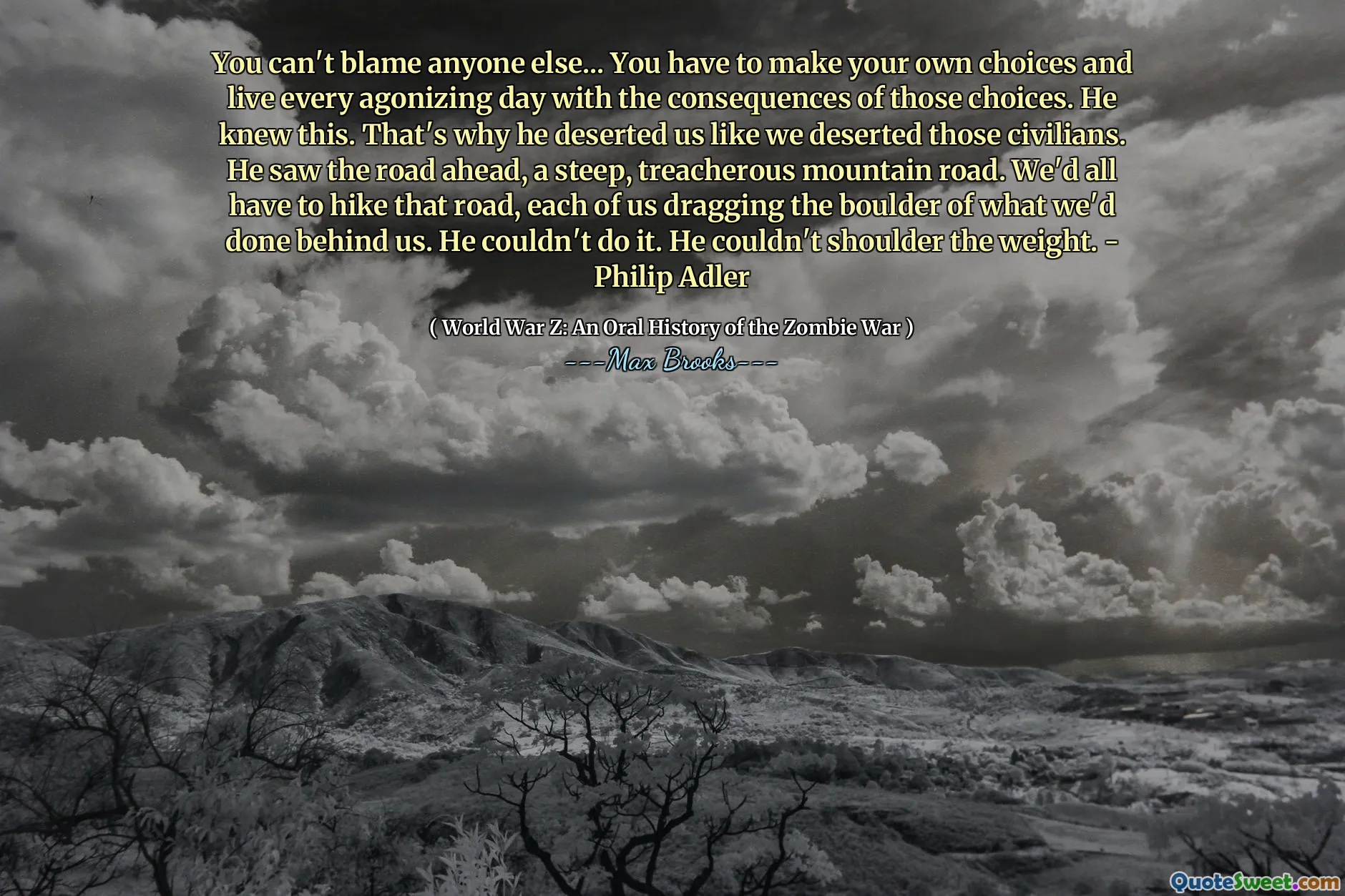
You can't blame anyone else... You have to make your own choices and live every agonizing day with the consequences of those choices. He knew this. That's why he deserted us like we deserted those civilians. He saw the road ahead, a steep, treacherous mountain road. We'd all have to hike that road, each of us dragging the boulder of what we'd done behind us. He couldn't do it. He couldn't shoulder the weight. - Philip Adler
The quote reflects a profound truth about personal responsibility. It emphasizes that individuals must accept the consequences of their choices, regardless of the situation they find themselves in. The narrator expresses a deep understanding of this burden and how it manifests in their relationships and actions. The weight of decisions can be overwhelming, and it is often easier to walk away than to confront the repercussions. This idea of facing one's own mistakes or abandoning others serves as a stark reminder of human frailty in the face of moral dilemmas.
In the context of war, the quote underscores a significant theme: the struggle with guilt and accountability. The character's choice to desert not only reflects a personal struggle but also symbolizes a greater moral failing shared by many. Each person carries the 'boulder' of their actions, which can lead to isolation and despair. Ultimately, this illustrates the heavy toll of conflict on individuals and the ethical complexities faced during dire circumstances, presenting a poignant commentary on the human condition amidst chaos.











